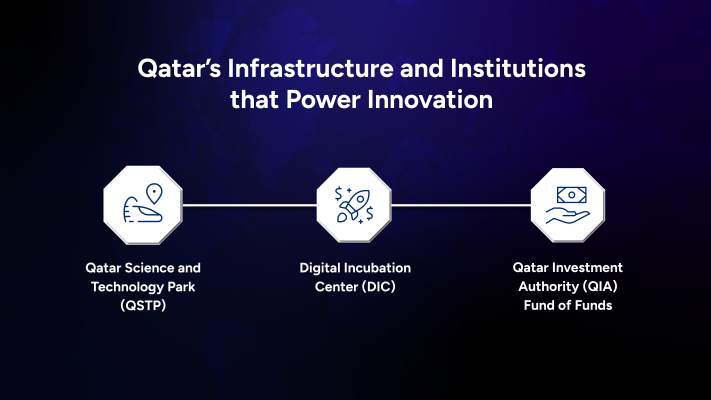Bridging the Talent Gap in Qatar
Qatar is at a pivotal moment in its journey toward becoming a global hub for innovation and entrepreneurship. The nation has invested heavily in infrastructure, technology, and economic diversification, aiming to reduce reliance on traditional sectors. However, a persistent challenge remains: the talent gap. Despite a growing number of ambitious startups and emerging industries, there is a shortage of skilled professionals who can drive innovation forward.
Addressing this challenge requires a deliberate and strategic approach to talent development. One promising solution, highlighted by leading startup consultants, is the implementation of a national innovation talent scorecard combined with centralized internship programs. These mechanisms could provide a structured framework to identify, nurture, and deploy top talent across Qatar’s burgeoning startup ecosystem.
The Need for a National Innovation Talent Scorecard
A national innovation talent scorecard acts as a comprehensive tool to measure the skills, competencies, and potential of individuals in key sectors. Unlike traditional academic metrics, this scorecard would focus on innovation-oriented skills such as creativity, problem-solving, entrepreneurial thinking, and adaptability.
Currently, there is no standardized way to evaluate innovation potential in Qatar. Universities produce graduates with strong theoretical knowledge, but the alignment between academic output and industry needs is inconsistent. A talent scorecard could help bridge this disconnect by providing a clear benchmark for skills that are essential in today’s fast-paced business environment.
The scorecard would allow government institutions, private companies, and startups to identify high-potential talent early. It would also provide students and young professionals with insight into their strengths and areas for improvement, enabling them to make informed decisions about their career development. By creating a unified framework for assessing innovation skills, Qatar can ensure that its workforce is well-prepared for the challenges of the 21st century.

Centralized Internships: A Strategic Solution
Alongside a talent scorecard, centralized internship programs offer another critical solution to the talent gap. Internships are widely recognized as one of the most effective ways for students and young professionals to gain practical experience, develop industry connections, and refine their skills in real-world settings.
Currently, internship opportunities in Qatar are often fragmented. Many students struggle to find placements that align with their career goals, while companies face difficulty in sourcing qualified candidates. A centralized platform for internships could resolve both issues by connecting talent with opportunity in a structured and transparent way.
Such a platform could be designed to match students based on their innovation talent score, ensuring that each individual is placed in an environment where they can thrive. Additionally, it would allow startups and established companies to access a larger pool of qualified candidates, fostering collaboration and knowledge transfer across industries. By making internships more accessible and strategically aligned, Qatar can accelerate the development of a skilled and innovative workforce.
Empowering Startups Through Talent Development
Startups are the engines of innovation, and their success depends heavily on the quality of talent they can attract and retain. Qatar’s startup ecosystem has seen impressive growth in recent years, but many new ventures struggle to find employees with the right combination of technical skills and creative thinking.
By introducing a national innovation talent scorecard and centralized internship programs, the government can provide startups with a pipeline of qualified talent. Early-stage companies, in particular, would benefit from a reliable system that identifies individuals with high innovation potential and places them in roles where they can make a meaningful impact.
Moreover, these initiatives would foster a culture of continuous learning and experimentation. Startups often require employees who can wear multiple hats, adapt quickly to changing market conditions, and contribute innovative solutions to complex problems. A talent scorecard can help identify candidates with these qualities, while internships provide practical experience in applying them.
Enhancing Collaboration Between Academia and Industry
One of the critical benefits of a national talent scorecard and centralized internships is the strengthened collaboration between educational institutions and industry players. Universities in Qatar are producing a growing number of graduates in science, technology, engineering, and business. However, the alignment between academic programs and market demands is often inconsistent.
Through the implementation of a talent scorecard, universities can tailor curricula to better prepare students for real-world challenges. They can incorporate modules on innovation management, entrepreneurship, and applied technology, ensuring that graduates are not only knowledgeable but also capable of driving change.
Centralized internships complement this effort by offering students hands-on experience, allowing them to apply theoretical knowledge in practical settings. This combination ensures a continuous feedback loop between academia and industry, ultimately leading to a workforce that is more competent, confident, and ready to contribute to Qatar’s vision for innovation-led growth.

Building a Competitive Advantage for Qatar
In the global economy, talent is one of the most critical determinants of competitiveness. Countries that can effectively identify, nurture, and deploy skilled individuals are better positioned to attract investment, drive economic growth, and lead in innovation.
For Qatar, a national innovation talent scorecard and centralized internship framework represent a strategic investment in the nation’s human capital. By systematically evaluating and developing talent, Qatar can ensure that its workforce meets the evolving demands of high-tech industries, creative enterprises, and knowledge-based sectors.
This approach not only benefits individual professionals and companies but also strengthens Qatar’s overall economic resilience. A highly skilled, innovation-driven workforce will enable the nation to compete on a global scale, attract multinational companies, and foster a culture of entrepreneurship that contributes to long-term prosperity.
Encouraging Entrepreneurship Through Skills Recognition
Another important advantage of implementing a talent scorecard is the encouragement of entrepreneurship. Many talented individuals possess creative ideas but lack the confidence or resources to turn them into viable businesses. By providing measurable recognition of innovation skills, the scorecard can boost self-confidence and motivate young professionals to pursue entrepreneurial ventures.
Coupled with centralized internships, these initiatives create a supportive ecosystem where aspiring entrepreneurs gain practical experience, mentorship, and exposure to industry best practices. This combination empowers individuals to take calculated risks, innovate, and contribute to Qatar’s dynamic startup landscape.
Startups, in turn, benefit from a talent pool that is not only technically proficient but also entrepreneurial in mindset. The result is a virtuous cycle of innovation, skill development, and economic growth that positions Qatar as a hub for forward-thinking enterprises.
Fostering Inclusive Growth and Diversity
A well-designed talent scorecard and internship system can also promote inclusivity and diversity in the workforce. By establishing standardized criteria for evaluating innovation potential, these tools reduce the reliance on informal networks and subjective hiring practices.
This creates equal opportunities for individuals from different backgrounds, encouraging participation from underrepresented groups and fostering a more diverse and inclusive innovation ecosystem. Diversity is not only a social imperative but also a driver of creativity and problem-solving. Teams with varied perspectives are more likely to generate novel solutions and respond effectively to complex challenges.
Qatar can leverage this approach to create a workforce that reflects the nation’s multicultural society while driving innovation across all sectors. Inclusivity ensures that development efforts benefit everyone, creating a more equitable and prosperous society.
Measuring Impact and Continuous Improvement
For any initiative to succeed, measurement and feedback are essential. The national innovation talent scorecard should not be static; it must evolve based on outcomes, industry needs, and global trends. Regular assessment of the program’s effectiveness will help identify gaps, refine scoring criteria, and enhance training initiatives.
Similarly, centralized internships should incorporate mechanisms for monitoring student performance, employer satisfaction, and overall impact on talent development. By collecting data and analyzing results, stakeholders can continuously improve these programs, ensuring that they remain relevant and effective over time.
This approach emphasizes a culture of accountability, learning, and adaptationn qualities that are critical for sustaining innovation and building a resilient talent ecosystem in Qatar.
Long-Term Vision for Qatar’s Innovation Economy
The combination of a national innovation talent scorecard and centralized internships represents a transformative step toward realizing Qatar’s long-term economic vision. By strategically developing human capital, the nation can close the talent gap, empower startups, and foster a culture of innovation that supports sustained growth.
Over time, these initiatives can help Qatar become a global leader in knowledge-driven industries, attracting investment, nurturing entrepreneurship, and enhancing competitiveness. The focus on talent ensures that economic development is not limited to infrastructure or capital investment but is grounded in the capabilities and potential of people.
In essence, Qatar’s future as an innovation-driven economy depends not only on technological advancements but also on the systematic development and recognition. The proposed initiatives provide a roadmap for achieving this vision while creating meaningful opportunities for individuals and businesses alike.
Conclusion: A Call to Action
Qatar stands on the threshold of a new era one defined by innovation, entrepreneurship, and knowledge-driven growth. Yet, without a strategic focus on talent development, the nation risks falling short of its ambitious goals. A national innovation talent scorecard and centralized internship programs offer practical and impactful solutions to bridge the talent gap.
These initiatives empower individuals, support startups, foster collaboration between academia and industry, and promote inclusivity and diversity. They also provide measurable benchmarks for innovation skills, ensuring that talent is identified, nurtured, and effectively deployed across the economy.
By implementing these strategies, Qatar can strengthen its position as a global hub for innovation, attract world-class talent, and create a sustainable ecosystem that benefits businesses, professionals, and society as a whole. The time to act is now, and with deliberate investment in talent, Qatar can transform its vision of a knowledge-based economy into a reality.
Do follow Gulf Magazine on Instagram.
Also Read –Qatar Embassy Advises Citizens to Avoid London Protests for Safety



